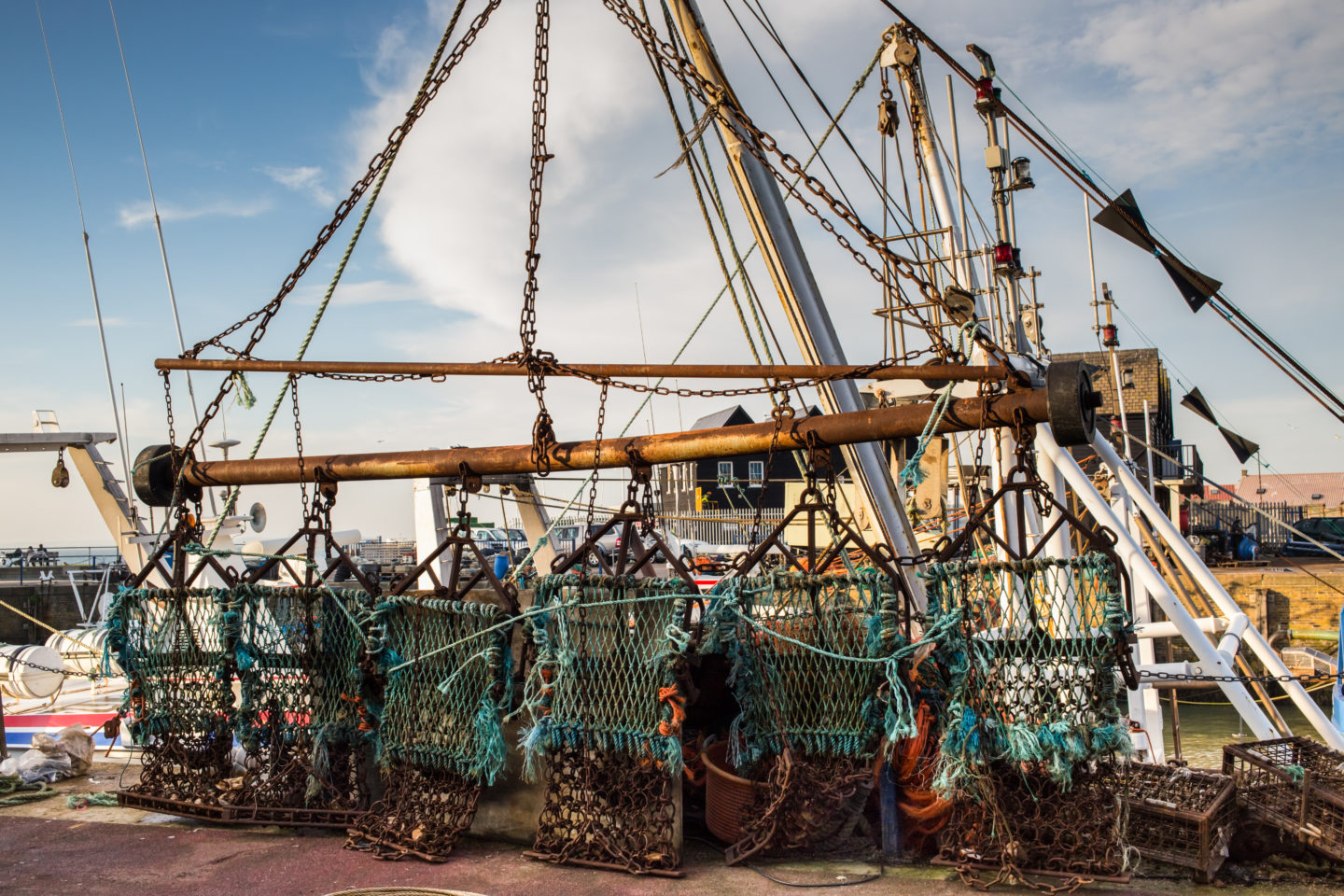Suspicious scallop dredging activity has taken place in the Sound of Mull, according to the campaign group, Open Seas, which claims that Scotland has a “systematic problem” with illegal dredging that needs urgently addressed.
The most recent incident was in late January. It was the third in the Loch Sunart to Sound of Jura marine protected area (MPA) over the past 12 months. Since 2016 there have been 22 reports of suspected illegal activity in this area alone.
Open Seas said that a scallop dredger, publicly transmitting its location via Automatic Identification System (AIS), headed south from Tobermory into the Loch Sunart to Sound of Jura MPA. As dusk approached on the Sound of Mull, the vessel arrived at a boundary inside the MPA beyond which scallop dredging is banned.
Open Seas said that the AIS signal transmitted from the scallop dredger indicated the vessel was moving at an average walking speed – approximately three knots per hour – and in a “long, circular pattern, looping repeatedly into the closed area”.
“Scallop dredgers in Scotland usually tow their gear at a speed of less than four knots, so these tracks appeared to indicate that the scallop vessel was actively dredging, and up to half a kilometre inside the boundary of the MPA,” Open Seas said.
Volunteer divers took photos at the time which revealed the seafloor was littered with smashed shells including sea urchins and scallops. Just yards away from the towed area were patches of healthier seabed, highlighting the stark contrast between dredged and un-dredged ground, according to Open Seas.
Phil Taylor, head of policy and operations at Open Seas, said that “conscientious consumers buying scallops” and “responsible restaurants selling them” need to start asking where the shellfish are coming from.
He also condemned the Scottish Government, saying that in December more than 40 organisations wrote to the First Minister, Nicola Sturgeon, asking what action was being taken.
“No minister responded but a letter from the civil service indicated that they considered issues would be resolved in the next two years by investment in fishing vessel tracking and monitoring,” Taylor said.
“Remarkably however the boat sighted in the Sound of Mull is already fitted with tracking and monitoring technology, and was even transmitting its location publicly at the time. Despite all this, government failed to act to stop it.”
Taylor added: “We are persistently seeing reckless and illegal destruction in our most vulnerable coastal seas”. He also claimed that Scottish ministers were “ignoring calls for better protection and failing the people who live and work in the places this is happening”.
“Coastal communities and businesses are losing faith in ministers’ ability to take this seriously and put an end to shameless illegality on their doorsteps,” he said, adding that until better vessel monitoring is in place there would be “serious gaps in traceability” of vessels.
Open Seas also claims that larger boats may be switching off tracking systems to dredge illegally, while small boats without mandatory tracking could also be breaking the law.
Illegal dredging in protected areas has previously been blamed for damaging seabed habitats in the Firth of Lorn and Loch Carron. In the Firth of Lorn in Argyll, divers filmed broken shells, dislodged boulders and fresh scallop meat in February 2018.
Last year damage to a rare reef in Loch Carron in the west Highlands was discovered, leading to an emergency closure of the waters.
A Scottish Government spokesperson said: “Dredging is subject to strict regulations and any illegal activity is completely unacceptable. We can confirm a case of suspected illegal dredging in the Loch Sunart to Sound of Jura MPA was reported to Marine Scotland in late January 2019.
“We remain actively engaged with local groups and stakeholders on issues around marine protected areas, and we will continue to do so going forward.”
The Scottish White Fish Producers Association (SWFPA) said: “SWPFA is supportive of vessel monitoring systems (VMS) on all scallop vessels and have asked the government a number of times to implement VMS on all scallop vessels as soon as possible. SWFPA is also part of multiple initiatives working towards a better scallop management, all supportive of MPAs.”
The association added: “SWFPA supports the MPA network and has been involved with the development of MPAs since the beginning. We discourage our members from fishing in MPAs and regret that few vessels choose to smudge the name of the scallop industry. However, we would like to make clear that these are the exceptions and not the bulk of the industry.”
Underwater film footage revealing the damage allegedly caused by illegal dredging was published in December by The Ferret. The video was produced by Open Seas which was investigating allegations of illegal scallop dredging at Loch Gairloch in Wester Ross.














